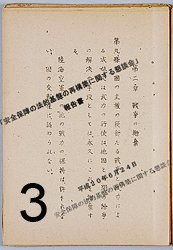The next segment of my analysis of the Yanai Report is long overdue. The final two posts were supposed to be the critical analysis of the report, from both a constitutional and international law perspective. The constitutional criticism was briefly explained in my Op-Ed piece in the Japan Times, which can be found here. Before posting a more developed version of that, together with the international law critique, I am posting below the Japanese translation of the Op-Ed piece. It was declined by the Asahi Shinbun (ostensibly because it was too narrow in focussing exclusively on one fundamental flaw in the report), but I thought that it should be made available somewhere for wider consumption, since there has been little debate on this aspect of the report in the Japanese media. The eloquent translation is thanks to Prof. Norimoto Setsuko.
??????????????????????????
??????????????????????????????????????????????????????????????????????????????????????????????????????????????????????????????????????????????????????????????????????????????????????
????2007?4?????????????????????????????????????????????????13??????????????????????????????????????????????????????????????????????????????????????????????????????????????????????????????????????????????????????????????????6????????????????
???????????????????????????????????????????????????????????????????????????????????????????????????????????????????????????????????????????????????????????????????????????

 full, this posting is less a summary and more a full report on the substance of this part of the report. There is much to criticize here, but the analysis is left for the fourth and final posting on the report.
full, this posting is less a summary and more a full report on the substance of this part of the report. There is much to criticize here, but the analysis is left for the fourth and final posting on the report.